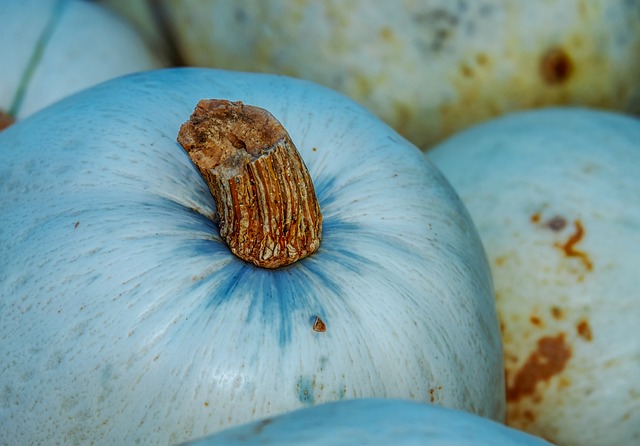Elevate Your Garden’s Health: A Compost Creation Guide for Yard Waste Recycling Enthusiasts
Yard waste removal and recycling through composting play a pivotal role in sustainable gardening by …….

Yard waste removal and recycling through composting play a pivotal role in sustainable gardening by enriching soil health and promoting ecological balance. This process involves responsible disposal of organic matter like grass clippings, leaves, and branches, adhering to environmental standards and local regulations. Successful composting requires careful layering of 'greens' (nitrogen-rich materials) and 'browns' (carbon-rich materials) within a composter, which supports microbial activity for efficient decomposition. Gardeners should regularly turn their compost pile to aerate it and manage moisture levels to minimize odors and pests while accelerating the process. By diverting yard waste from landfills, where it could contribute to methane emissions, composting helps conserve space and creates nutrient-rich compost that improves soil structure, water retention, and fertility. This practice not only benefits garden ecosystems but also contributes significantly to broader environmental sustainability goals by reducing waste and the need for chemical fertilizers. Yard waste removal and recycling through composting is a sustainable and eco-friendly approach that supports healthier gardens and a more balanced environment.
title: “Elevate Your Garden’s Vitality with Yard Waste Recycling and Compost Creation”
Garden enthusiasts understand the significance of soil health in cultivating a thriving garden. Yard waste, often seen as discardable material, can be transformed into a treasure trove of nutrients for your plants. This article delves into the art of compost creation, providing a comprehensive guide to maximizing your garden’s fertility through effective yard waste removal and compost generation. By understanding the composting process and following a step-by-step approach to setting up a compost bin, you can engage in eco-friendly yard waste management that enriches your garden and promotes sustainability. Embrace the opportunity to recycle and rejuvenate your garden soil, and watch as your green space flourishes with the help of yard waste recycling.
- Maximizing Your Garden's Fertility: A Guide to Effective Yard Waste Removal and Compost Creation
- Understanding the Composting Process: Transforming Garden Debris into Nutrient-Rich Soil with Yard Waste Recycling
Maximizing Your Garden's Fertility: A Guide to Effective Yard Waste Removal and Compost Creation

Engaging in yard waste removal and compost creation is a rewarding endeavor for garden enthusiasts eager to maximize their garden’s fertility. By converting organic matter from yard maintenance into nutrient-rich compost, gardeners can enhance soil health and promote sustainable gardening practices. The process begins with the conscious collection of yard waste such as grass clippings, leaves, and pruned branches. It’s crucial to differentiate between compostable and non-compostable materials to ensure a healthy composting environment; inorganic waste should be disposed of properly according to local regulations. Once collected, these organic materials can be layered in a compost bin or pile, alternating between green (nitrogen-rich) and brown (carbon-rich) matter to maintain an optimal balance for decomposition. Regular turning and moisture control are key to accelerating the breakdown process and preventing odors or pests. Yard waste removal and recycling through composting not only reduces landfill use but also provides a valuable resource for your garden, improving soil structure and increasing water retention. This DIY approach to yard waste management empowers gardeners to contribute to environmental sustainability while enhancing their garden’s vitality and yield. By adopting this eco-friendly practice, enthusiasts can cultivate a thriving garden ecosystem that is both productive and in harmony with the natural cycle of nutrient return.

Garden enthusiasts looking to enrich their soil and reduce waste can turn to compost creation as an eco-friendly solution. Yard waste removal typically involves collecting organic material such as leaves, grass clippings, and garden trimmings. However, by recycling these materials through composting, you transform what might otherwise be discarded into a valuable resource. Composting not only minimizes the volume of yard waste that ends up in landfills but also enhances the fertility of your garden soil. The process begins with identifying a suitable composting system that fits the space in your yard and meets your needs. Whether you opt for a simple heap or a more sophisticated composter, the key is to maintain a balanced mix of ‘greens’—nitrogen-rich materials like kitchen scraps and manure—and ‘browns’—carbon-rich materials such as dried leaves, straw, or shredded paper. Regular turning of the compost pile and monitoring its moisture levels will accelerate the decomposition process and yield a nutrient-rich compost that can be used to improve soil structure, increase water retention, and stimulate beneficial microbial life in your garden. This not only contributes to the health of your plants but also represents an effective form of yard waste recycling. Embracing compost creation is a step towards sustainability in gardening, reducing environmental impact, and creating a cycle of nutrient reuse that benefits both your garden and the environment.
Understanding the Composting Process: Transforming Garden Debris into Nutrient-Rich Soil with Yard Waste Recycling

Composting is a natural process that transforms organic garden debris and yard waste into nutrient-rich soil, enhancing the fertility of your garden and reducing the need for chemical fertilizers. To initiate this eco-friendly cycle, understanding the composting process is key. It begins with the collection of appropriate materials—green waste like kitchen scraps, grass clippings, and coffee grounds, along with brown materials such as dry leaves, straw, and shredded paper. These components are essential for balancing nitrogen and carbon levels within the compost pile, a principle that mirrors the balance found in healthy soil.
Yard waste removal and recycling play a pivotal role in this sustainability practice. By composting, you divert organic matter from landfills, where it would otherwise decompose anaerobically, producing methane—a potent greenhouse gas. Instead, aerobic decomposition occurs in your compost pile, facilitated by microorganisms that break down the materials in the presence of oxygen. This process not only mitigates greenhouse gas emissions but also yields a valuable end product. The resulting compost is a rich, humus-like material that improves soil structure, increases water retention, and provides essential nutrients for your plants, creating a symbiotic relationship between garden maintenance and environmental stewardship.
Garden enthusiasts eager to enhance their garden’s vitality will find the insights on maximizing fertility and understanding composting invaluable. By embracing yard waste removal and recycling practices, you transform what might otherwise be seen as debris into a treasure trove of nutrients for your soil. The process not only contributes to sustainable gardening but also yields rich, organic matter that supports plant growth and health. This guide serves as a stepping stone for those looking to engage with eco-friendly yard waste management, fostering thriving gardens while reducing environmental impact. Embrace composting as a key practice in your gardening routine, and witness the transformative power it holds for your garden’s ecosystem.





